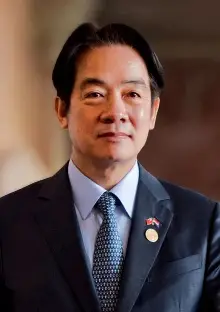Taiwan has unveiled a $40bn special defence budget in response to what it describes as intensifying threats from Beijing and accelerating preparations for invasion.
President Lai Ching-te declared there was “no room for compromise on national security” as he pledged to strengthen Taiwan’s military capabilities with the support of the United States.
Speaking on Wednesday alongside defence minister Wellington Koo, Lai said the additional spending represented an increase of at least $8bn on earlier projections. The announcement followed a briefing from Taiwan’s national security council and comes at a time of heightened tension across the Taiwan Strait.
Lai emphasised that the confrontation was not about ideology or the debate over unification versus independence, but about defending Taiwan’s democratic system.
“This is not an ideological struggle, nor a ‘unification vs independence’ debate, but a struggle to defend ‘democratic Taiwan’ and refuse to submit to being ‘China’s Taiwan’,” he said.
The president accused Chinese authorities of escalating military harassment, international pressure, propaganda campaigns, espionage, and infiltration within Taiwan. He warned that the most dangerous scenario was not direct military action but the possibility of Taiwan “giving up”. “History has proven that compromising with aggression only brings war and enslavement,” Lai said. He added that Beijing’s proposal of a Hong Kong-style ‘one country two systems’ arrangement should be regarded as an “inviolable red line for Taiwanese society”.
Defence minister Koo outlined that the new budget, covering 2026 to 2033, would fund advanced technologies including artificial intelligence tools to enhance existing systems, as well as new missiles and drones. He said improvements would also be made to military procurement, noting that several major orders from the United States had faced significant delays. In addition, measures would be introduced to protect Taiwanese citizens abroad from Chinese transnational repression.
The increase is expected to raise Taiwan’s defence spending to 3.3 per cent of GDP in 2026, with Lai pledging to reach 5 per cent by 2030.
The announcement was welcomed by Raymond Greene, the representative at the American Institute in Taiwan, the US’s de facto embassy. Greene described the move as “a major step towards maintaining peace and stability across the Taiwan Strait by strengthening deterrence”.
China reacted angrily to the announcement. Peng Qingen, spokesperson for the Taiwan Affairs Office, told reporters that Taiwan was wasting resources by “currying favour with external powers”. He warned: “This will only plunge Taiwan into disaster.”
The development came shortly after a phone call between US president Donald Trump and Chinese leader Xi Jinping.
According to a Chinese readout, Xi reiterated Beijing’s claim over Taiwan and its intention to annex the island. “Taiwan’s return to China is an integral part of the post-war international order,” Xi told Trump.
Regional tensions have also been heightened by a diplomatic dispute between China and Japan.
Japan’s prime minister, Sanae Takaichi, recently stated that her country would likely intervene militarily if China attacked Taiwan.
Japan’s defence minister, Shinjiro Koizumi, visited Yonaguni on Saturday and confirmed that preparations for the deployment of a medium-range, surface-to-air missile system were “progressing steadily”.
“Japan’s deployment of offensive weapons in areas adjacent to China’s Taiwan region is extremely dangerous, deliberately creating regional tensions and provoking military confrontation,” Peng said.
He added: “We have a firm will, strong determination and a strong ability to defend our national sovereignty and territorial integrity… We will crush all foreign interference.”



